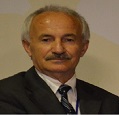Title : ?- Alkynol inhibition in Ru/Pt dual catalysis for hydrosilylation of silicones
Pierre Chevalier, Dow Silicones Belgium SPR, Belgium
The platinum-catalyzed hydrosilylation reaction between a silicon-hydrogen and a carbon-carbon double bond is one of the foundational chemistries for the silicone industry. Since first reported in 1957, this addition reaction has been extensively use [....]






















Title : Catalytic and photocatalytic membrane reactors
Teresa Poerio, CNR-ITM, Italy
The search for alternative methods to those applied for chemical production at an industrial level, such as reduction and oxidation processes, has become more intense. Many studies emphasize the innovative potentialities and the emerged role of the m [....]
Title : Catalysts for Ethylbenzene to Styrene: Challenges & Breakthrough
Palanichamy Manikandan, Clariant Corporation
Styrene is one of the major commodity chemicals/monomers used for the production of different polymeric materials such as polystyrene (PS), acrylonitrile-butadiene-styrene (ABS) and styrene-butadiene rubber, which find their use in several segments i [....]
Title : Nanomaterial as catalysts in photoelectrochemical energy conversion and hydrophobic recovery
Deepak Ganta, Texas A&M International University, USA
Natural plant-based dye-sensitized solar cells (DSSCs) gained significance due to their low cost, non-toxicity, environmental friendliness and availability. Plant dyes serve as a sensitizer, which absorbs sunlight and converts solar energy into elect [....]
Title : Highly efficient functionalized calix[4]pyrrole wrapped scrupulous nano-palladium catalyst
Keyur Bhatt, Ganpat University, India
Calix(4)pyrrole-palladium nanoparticles synthesis with the help of meso-modified hydroxy calix(4)pyrrole (OHCP) derivatives. OHCP-PdNPs utilized for the C-C coupling reactions as an efficient nanocatalyst. This study includes the stability as well as [....]
Title : Sustainable removal of Phosphate from aqueous solutions by Electrodeionization (EDI)
Ozgur Arar, Ege University, Turkey
Phosphorus is widely used in agriculture and industry. It is an important substance in the human body but excessive phosphorus in the water system may cause environmental problems known as eutrophication. In this work, the electrodeionization (EDI) t [....]
Title : Review of research topics for scaling-up of sonochemical reactors (sono-reactors)
Orlando Elguera, Universidade de São Paulo, Brazil
This study is aimed to review the topics of chemical engineering to take in consideration for the scaling-up of reactors, in order to perform processes based on the application of the sonochemistry at industrial level. Sonochemistry is an emergent te [....]
Title : Computational design of highly active electrocatalysts for oxygen evolution reaction
Hyeyoung Shin, Chungnam National University, Republic of Korea
Electrocatalyst is a key component to applications of electrochemistry in energy and environment. Metal oxides/oxyhydroxides are promising electrocatalysts beyond metals which have been mainly used as electocatalysts but suffered from its intrinsic l [....]
Title : Characterization of petroleum fractions by in situ EPR spectroscopy
Ben Tayeb Karima, University of Lille, France
The behavior and the structural properties of organic radical species (ORs) in their native hydrocarbon environment as a function of temperature was investigated by electron paramagnetic resonance spectroscopy (EPR). Five petroleum fractions derived [....]
Title : Palladium-catalyzed benzylic-like nucleophilic substitution of benzofuran-2-ylmethyl acetate with N, S, O and C soft nucleophiles
Antonia Iazzetti, Catholic University of Sacred Heart, Italy
The benzo[b]furan core is a motif present in several natural and unnatural pharmacologically active compounds exhibiting various biological properties including anti-infiammatory, anti-oxidant, anti-arrhythmic, hemostatic, antimicrobial, anti-viral, [....]
Title : Effect of tunable redox behavior of bis chelate substituted 1, 10-phenantroline Cu(II) complexes on its reaction with superoxide anion in DMSO. Toward a simple criterion to identify a SOD-like mechanism
Mayra Elba Manzanera Estrada, Instituto Tecnològico Superior Zacatecas Sur, Mexico
Abstract: In this work we report a series of Cu(II) complexes [Cu(N-N)2(X)] +, (N-N = substituted 1,10-phenanthroline derivatives and X = Cl− or NO3 −), with tunable E1/2 for electrochemical reduction [CuII(N-N)2(X)]+ + 1e− ? [CuI ( [....]
Title : Green solvents as a new tool for olefin metathesis
Ervin Kovacs, Research Centre for Natural Sciences, Hungary
Olefin metathesis plays an important role in the field of pharmaceuticals, materials and petrochemical processes. Olefin metathesis is a catalytic process which involves a pair of carbon-carbon double bonds to be rearranged in order to form new produ [....]
Title : Adsorptive removal of toxic phenol from industrial wastewater using low-cost adsorbents
Ashanendu Mandal, Doctorate in Chemical Engineering at University of Calcutta, India
Phenol being toxic in nature needs to be removed from wastewater before its discharge. This research aims for removal of phenol through adsorption process using several low-cost adsorbents. Four bio-adsorbents such as guava tree bark, rice husk, neem [....]
Title : Transition metal-catalyzed site-selective C-H functionalization of N-heteroaromatics
Devalina Ray, Amity University, India
Nitrogen containing heterocycles and their analogues are ubiquitous organic scaffolds found in nature and are known as medicinally important pharmacophores, among which azoles, pyrroles, indoles and quinolines have the most frequent occurrence. Hence [....]
Title : Supercritical Fluids as Reaction Media for Scalable Production of Carbon Nanomaterials
Haider Almkhelfe, Kansas State University, Iraq
We have demonstrated scalable and selective synthesis of carbon nanotubes (CNTs), carbon nanofibers (CNFs), and onion-like carbon (OLC) in a batch reactor using supercritical fluids (SCF) as reaction media. The process utilizes toluene and alcohols ( [....]
Title : Development of NiZn Bimetallic Catalysts for Hydrogen Evolution via Selective Dehydrogenation of Methylcyclohexane
Anaam Al-ShaikhAli, Saudi Aramco, Research and Development Center, Saudi Arabia
Liquid organic chemical hydride is a promising candidate for hydrogen storage and its easy transport. Dehydrogenation of methylcyclohexane (MCH) to toluene (TOL) has been considered as one of the feasible cycles for hydrogen carrier, but selective [....]
Title : Heck catalysis of palladium nanoparticles obtained in different reducing systems
Rocio Redon, National Autonomous University of Mexico, Mexico
Palladium(0) nanoparticles have been widely used in cross coupling reactions, including Heck reactions. For this study, we obtained palladium(0) nanoparticles in colloidal suspension using different combinations of solvents and reducing methods under [....]
Title : Teaching and Learning Chemistry in Context with Nanotechnology Applications
Riam Abu Much, The Academic Arab College for Education in Haifa, Israel
Nanoscience and nanotechnology (NST) are at the forefront of modern science in the 21st century. Nanotechnology applications are penetrating all aspects of society, affecting humans’ everyday life and needs, in addition to their great contribut [....]
Title : Degradation of non-steroidal drug under solar irradiation in the presence of NiFe2 O4 nanoparticle
Boucheloukh Hadjira, University of Constantine, Algeria
To optimize water purification and wastewater treatment by heterogeneous photocatalysis we utilize a NiFe2O4 or as a catalyst and solar irradiation as a source of energy. In this concept an organic substance present in many industrial effluents was c [....]
Title : Mathematical modeling of the adsorption process with variable conditions
Miryusif Mirbabayev, Azerbaijan Technical University, Azerbaijan
In modern chemical technology, adsorption devices are widely used for the interaction of substances in various states of aggregation. The desire to intensify the operation of industrial adsorbers leads to an increase in the speed of phase movement, a [....]
Title : Hierarchical Porous Metals Manufactured by Powder Metallurgy and De-alloying
Yuyuan Zhao, University of Liverpool, UK
This presentation gives a short overview of the characteristic properties of porous metals manufactured by powder metallurgy based space-holder methods. In this family of methods, a metal powder is first mixed with a filler material in the powder for [....]